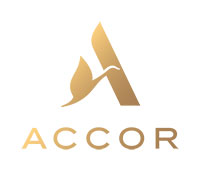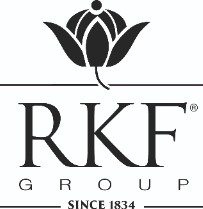
INTERVIEW - ÉRIC VIALE, MANAGING DIRECTOR OF IHG SOUTHERN EUROPE: "FOR IHG, FRANCE REMAINS THE PRIORITY MARKET IN WHICH WE WANT TO GROW".
The IHG Group is keeping to the course it set itself after the Covid crisis, opening properties, developing new markets in which it was not previously present and creating new brands. All against a backdrop of rising growth. |
 |
INTERVIEW - ÉRIC VIALE, MANAGING DIRECTOR OF IHG SOUTHERN EUROPE: "FOR IHG, FRANCE REMAINS THE PRIORITY MARKET IN WHICH WE WANT TO GROW".
The IHG Group is keeping to the course it set itself after the Covid crisis, opening properties, developing new markets in which it was not previously present and creating new brands. All against a backdrop of rising growth. |
Catégorie : Europe - Interviews et portraits
- Interviews
Interview de Guillaume Chollier le 01-12-2023
 Éric Viale is Managing Director of Southern Europe for the IHG Group.
Crédit photo © IHG Hotels & Resorts
Éric Viale, the IHG Group's Managing Director for Southern Europe, welcomed us into a lounge at the Kimpton Saint-Honoré Paris. For the Journal des Palaces, he agreed to take stock - necessarily a positive one - of a particularly rich year in 2023 for the group and the geographical sector for which he is responsible, and within which France occupies a place of choice.
Journal des Palaces: What are the IHG Group's objectives for the end of the year?
Éric Viale: Our objective is to grow, to continue to grow through our brands and our territories, and to gain market share. We have a long-term objective of being a real leader in terms of growth, so we are remaining active in this area, with many successes that we will come back to. Our objective is also to continue to drive the performance of our hotels. In this respect, the year was excellent in terms of performance. We announced a 24% increase in revenue per available room (RevPAR) for the first half of the year, and we recorded a 27% increase in operating profit for IHG. So, it's a very good year that we're about to close.
When we last spoke to you, around 18 months ago, the Group was expecting to open 278,000 rooms. Has this target been achieved?
In the first half of the year, we signed up 239 hotels around the world, representing almost 34,200 rooms, an increase of 11% on the previous year. More than 100 hotels in the Holiday Inn family and 18 Crown Plaza hotels were signed worldwide.
25% of our signatures were in the Luxury and Lifestyle segment. In previous discussions, we mentioned our intention to accelerate our expansion in these segments. So, we opened nine Kimptons and 15 Indigo hotels, bringing the total number of Kimptons to 75. This shows the extent to which IHG has enabled this brand to develop very rapidly.
40% of our signatures are based on conversion. There is a real trend towards conversion in new construction. It's a strong and growing trend. So, to date, overall, between open hotels and the pipeline, we have 286,000 rooms. This represents 2.9% growth in our hotel pipeline portfolio. So today we have 6,227 hotels open and 1,931 in the pipeline. So, we are in line with, or even slightly above, the forecasts we talked about 18 months ago.
You mentioned the Luxury Lifestyle aspect of your hotels. What's the status of the Vignette brand you were planning to create?
When we talked about this, we were indeed thinking about it because we can see that 40% of our hotels today are conversions. All our luxury brands can be converted, but we can have brands that are a little more flexible and more thoughtful about conversion. That's why we've launched Vignette Collection, which provides access to international visibility quickly, with minimal investment. Vignette Collection will fit in quite easily with existing hotels. These are luxury hotels with character that need to seek out the international distribution and visibility that IHG can provide.
To date, 25 Vignette Collection hotels have been signed around the world. For example, we have one in the United States, which is an important market for us. We have also signed up hotels in China, Japan, and Germany. In Southern Europe, we have three in Portugal, as well as in Italy. In France, we're still looking for the right property to establish Vignette, but I'm confident. These 25 hotels mark the presence of Vignette Collection in 15 countries.
Has the distribution of hotels around the world changed, or are we still following the same trends?
We are following the same trends: just over 50% in America, 25 or 26% in Europe and 16% in the rest of the world, particularly China. It's not an indicator that changes overnight. On the other hand, what is interesting to see, and this shows the dynamism of certain markets, is that today, when we have 500,000 rooms open in the United States, we have 100,000 signed in the pipeline. That's around 20% of the existing inventory. On the other hand, if we look at Europe, the Middle East or Africa, out of 239,000 rooms opened, we have 77,000 in the pipeline. That's more than 32% of our current presence, which is signed. And if we look at China, it's even more impressive, since we have 170,000 rooms open and 103,000 signed.
This balance is not going to change overnight, but the momentum is clearly visible. And it's clear that future growth will also be driven by Europe, the Middle East, Africa, and China. We have markets such as Saudi Arabia, and even India, where we see significant growth opportunities. So, the major balances are the same, but there are accelerating trends in certain parts of the world.
What is the situation in Southern Europe, a sector that particularly concerns you?
Southern Europe is going from strength to strength. For IHG, France remains the priority market in which we want to grow. We currently have 65 hotels open, 17 of which have been signed through our nine brands. In the other markets, we intend to grow in a disciplined way, meaning that we want, with our investor partners, to make sure we have the right brand in the right place, to which we can bring the full force of IHG distribution.
The major markets we have identified where we have resources and teams on the ground, and where we are completely comfortable with our ability to accelerate and expand, are essentially Spain and Portugal. In these countries, we are enjoying a very good momentum in terms of new signings and openings. Italy also has a good market, but it's still fragmented, and there's still potential there for the big international groups. It is not as mature as some of the other markets in which we have invested in terms of development resources. The third major market is Turkey. We have strengthened our development teams there. We already have a strong presence there, but we're also looking to expand significantly.
Then there are markets where we are more opportunistic, such as the Balkans and its major capitals, where we are keeping a close eye on our luxury brands.
Overall, the figures for Southern Europe will also show double-digit growth. So, this region is a major growth driver for us.
How is the French market faring?
In France, there was one opening that attracted a lot of attention: the Carlton, which has become a Regent Hotels property. It's a very fine brand, and it took us a long time to open it. As I was saying earlier about Vignette Collection, we wanted to make sure that everything was perfect. In my opinion, this opening confirms IHG's position as leader in the luxury sector in France. Between our InterContinental collection, the historic Kimpton building, where we are today, and now the Regent, we have really affirmed our luxury positioning.
New signings and openings are always on the cards. Investors are truly attracted to more leisure destinations. The post-Covid period has highlighted the emergence of a more leisure-oriented clientele, or at least one that combines leisure and business. But when we talk about leisure, we also see an attraction for mountain resorts and more rural resorts... And our brands can meet these demands too. So, we remain focused on our development strategy.
In France, unlike certain other markets where we will be concentrating on opportunities in capital cities with more luxury brands, we are pursuing a territorial network where all our brands can be established. For example, we have opened the Crown Plaza Marseille le Dôme and the Indigo in Bordeaux. Here too, the figures are very good this year and growth is continuing, so we're satisfied.
When you talk about hotels that are less urban and more 'rural', are you referring to the InterContinental that's due to open in Chantilly?
Yes, there are several aspects to this hotel. The first is the luxury positioning and the desire to continue to grow in luxury, but also in the spirit of what InterContinental represents in France: we are dealing with buildings that have history, that represent a terroir, that have real stories to tell, including in relation to the destination. So, Chantilly fits in perfectly with the filter we set for InterContinental. We're in a very attractive area with a wealth of cultural and historical attractions. The building is gorgeous, and we benefit from our proximity to Paris. So we have the capacity to attract both this more domestic clientele, who will be doing short-breaks, taking advantage of a superb spa or fine dining offer, and also a high-end clientele, who will be looking for pre- and post-visits to Paris. Therefore, we feel completely comfortable with our positioning in terms of what we want. With this property, we also have the capacity to attract the international clientele that the hotel may be lacking today.
Where does the hotel stand today?
Since we signed the contract, our ambition has been to run the hotel until the end of the Rugby World Cup and then to start renovating it so that it is ready for the Olympic Games. I went to meet the owners and the teams in September. Everything will be ready in time.
What are the Group's ambitions, in terms of results and development, for its ultra-luxury brands?
IHG's luxury brands account for a quarter of our signatures: InterContinental, Kimpton, and Six Senses. InterContinental, with its 77-year history, is the spearhead of our positioning. Kimpton, with its lifestyle positioning, has opened new customer segments and proprietary demands, and is showing impressive growth. With Six Senses, we have gone after an 'upper luxury' niche, more focused on sustainability and wellness, which is also continuing to grow rapidly. And of course, Regent, with its upper luxury positioning, symbolised by the Carlton and the Regent in Hong Kong, which officially opened on 8 November. As for Vignette Collection, it was probably the missing link in the conversion process, which now accounts for a large part of our growth. So, we're continuing to develop, and the figures show that we're accelerating. In terms of performance, these are hotels that have been extremely resilient and have performed very well, with further opportunities for the average price that we have generally seen in the market. On the other hand, other markets have taken a little longer to recover.
What fine addresses will IHG be opening in 2023?
In my area, the Six Senses Rome and the InterContinental Rome are great openings, in a city where IHG wanted to establish its luxury brands and where a Vignette Collection hotel, the Hotel Alexandra, is due to open in 2025. As we mentioned earlier, it is difficult to overlook the Regent Cannes. Also in France, Hotel Indigo Bordeaux welcomed its first guests in October. In Portugal, the Convent Square, a Vignette Collection hotel in Lisbon, also opened this year.
Internationally, we have the Regent Hong Kong and the InterContinental Bucharest in Romania, which is magnificent.
We also have some very fine openings coming up in 2024 and 2025: the InterContinental Chantilly, of course, but also the Kimpton Marbella, the InterContinental Tirana, the InterContinental Resort Crete, and the InterContinental Bursa, in Turkey, to name but a few.
Have you noticed a change in your customers' habits? What are their expectations now?
One trend often stands out: that of meaningful travel. Travellers have protected the leisure, relaxation, and reconnection part of their budget, which remains essential in their eyes. They want to feel connected to a culture, a history, a building, a cuisine. We clearly sense this trend, which is leading us to respond to it even more strongly in the luxury experience we offer. This trend is somewhat linked to destinations. As a result, the destinations that are going to be favoured will be those that give meaning to the trip.
The second trend, which is growing and accelerating, is what we call 'bleisure', where business and leisure travel are combined. We are seeing an increase in this phenomenon. The corollary of this phenomenon is that we are seeing a rejuvenation of our customer base. The development of teleworking has also made it possible to work while travelling and to mix leisure time with a few hours, or days, of work. All in all, these new trends are helping us to balance our time and our lives.
In 2019, 39% of our luxury customers belonged to the millennials or generation Z. We estimate that 61% of them will be in 2026. So, there is clearly a change in generation and a rejuvenation of the luxury customer base. This also represents several opportunities that the IHG Group will have to seize in order to offer experiences that make sense to these customers. As a result, in some hotels we are seeing three generations staying together, which confirms this new need to reconnect with one's values or loved ones to enjoy moments of leisure together.
 Hotel Indigo Bordeaux is one of IHG's new hotel openings this year
Crédit photo © IHG Hotels & Resorts
 Currently under construction, the InterContinental Chantilly will be operational for the Paris 2024 Olympic Games
Crédit photo © IHG Hotels & Resorts
 The Kimpton Los Monteros Marbelle is one of the IHG group's future addresses in Spain
Crédit photo © IHG Hotels & Resorts
|
|







